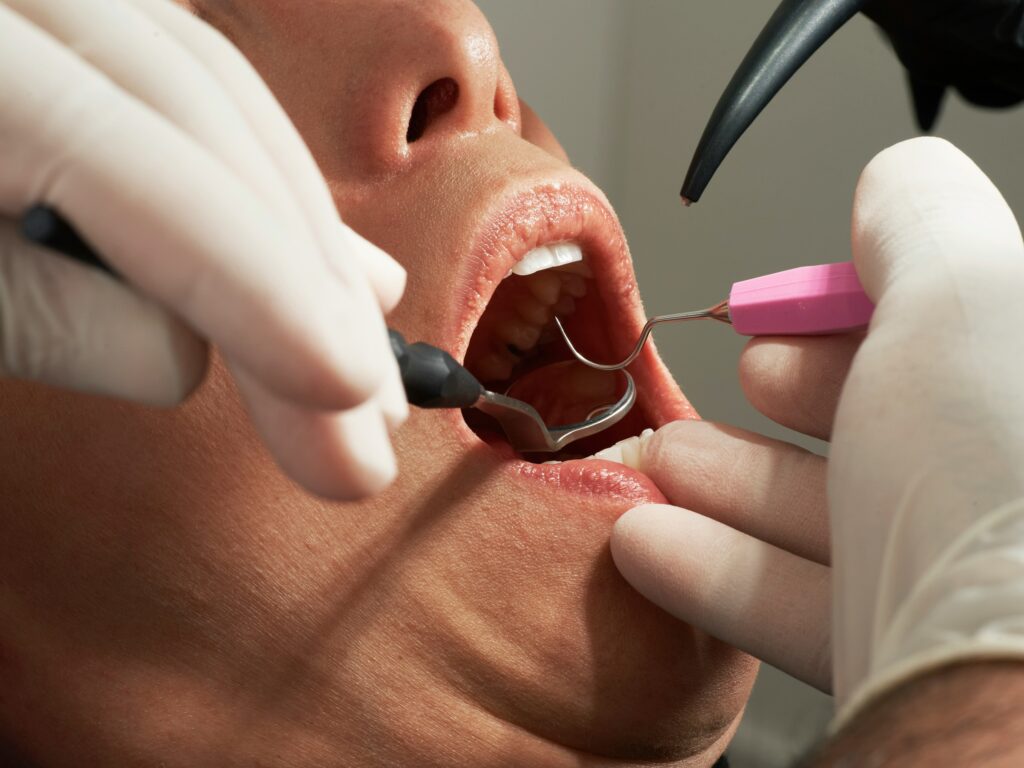Published: 11/22/2023

Cavities aren’t just a sign of declining dental health. They can also lead to pain, discomfort, and even tooth loss if not addressed. They can also affect a person’s smile as decay can lead to discoloration, staining, or visible holes in the teeth as they grow. So, what are cavities, and what are the best ways to deal with them?
What Are Cavities?
Cavities are also known as dental caries or tooth decay. They’re a very common dental problem that’s characterized by the gradual erosion of the hard tissues of the tooth.
They typically start as small holes or openings within the tooth’s enamel (the protective outer layer). Over time, without proper treatment, this decay can eventually reach the tooth’s pulp (or the innermost part), which contains the nerves and blood vessels. If not addressed, cavities can cause tooth pain, infection, or even tooth loss.
What Causes Cavities?
The primary causes of cavities include:
- Bad bacteria, which produce acids after feeding on sugars and carbohydrates from the foods and beverages you consume. Over time, the acids erode the enamel, which leads to weak spots on the teeth where cavities can develop.
- Poor oral hygiene, such as inadequate brushing and flossing, which can lead to plaque accumulation on the teeth. Plaque is a sticky film made up of bacteria and food particles. If not removed regularly, it can contribute to enamel erosion and the formation of cavities.
- Sugar-rich diets, as sugars and other starchy foods can linger on the teeth and be broken down by the acid-producing bacteria that harm tooth enamel.
- Dry mouth or a lack of saliva. Saliva helps neutralize the acids in the mouth as well as wash away food particles and bad bacteria. Some medical conditions, medications, and lifestyle factors can contribute to dry mouth.
- Lack of fluoride, a natural mineral that’s been shown to strengthen tooth enamel and make it more resistant to acid attacks.
- Tooth anatomy, as the shape and alignment of the teeth can also increase the risk of cavities. Grooves or pits in the teeth can trap food particles and be harder to clean and remove plaque, making them particularly vulnerable.
- Age is also a factor, as children and older adults tend to be more susceptible to cavities. This may be due to changing dietary or hygiene habits.
How to Prevent Cavities
As the saying goes, an ounce of prevention is worth a pound of cure. To help prevent cavities from developing, dentists recommend getting regular dental check-ups and professional cleanings.
It’s also important to develop good oral hygiene habits, such as brushing your teeth at least twice a day and flossing to remove food particles and plaque from between the teeth at least once a day. Your dental team can provide guidance on the most effective ways to brush and floss.
To help strengthen teeth, use fluoride-containing toothpaste, and talk with your dental team about fluoride rinses, which may help further protect your teeth from acid attacks. During your dental visit, your dentist may also recommend using a dental sealant on the teeth to help prevent food and bacteria from building up in crevices and breaking down enamel.
What goes into your body is also important, as the foods we eat provide the building blocks of our tissues, including our teeth. That means eating a diet rich in quality proteins, vegetables, fruits, and whole grains while limiting high-sugar snacks and beverages like sodas, sweetened teas, cakes, cookies, and crackers.
You can prevent dry mouth by drinking water throughout the day. Water also helps rinse away food particles and acids.
There are other holistic approaches to dental care, such as oil pulling (with coconut or sesame oil), herbs (like neem or licorice root), turmeric paste, and xylitol, that may help. However, it’s important to work with your dentist for personalized advice to prevent cavities.
While complementary approaches have some merit and potential, they don’t have as much scientific support (at least yet). So, they shouldn’t replace established dental care practices which do have a strong scientific basis. They should be looked at as complementary rather than as foundational.
Cavities Happen: Here’s How to Deal with Them
Even with the most diligent care, cavities can still occur (though they will be less likely). Dentists have several methods to help deal with cavities. The specific approach will depend on the size and severity of the hole. In general, here is how dentists deal with cavities.
They start by assessing and diagnosing the tooth using dental instruments, X-rays, and other tools to see how severe the cavity is. If the hole is minute, the dentist may watch the cavity while instructing you on how to prevent it from getting worse.
If the cavity requires treatment, the dentist will determine if it has pushed past the harder outer area and into the pulp. Treatment usually starts by numbing the area with a local anesthetic. This ensures you’ll remain comfortable and pain-free during the procedure.
The dentist will then use dental tools, such as a drill or laser, to remove the decayed and damaged parts of the tooth, which creates a clean, healthy base for restoration.
The tooth is then restored with an amalgam, composite, ceramic (or porcelain), or gold filling. The filling is shaped and polished to ensure it fits in naturally with the rest of the teeth and doesn’t interfere with your bite or leave any uncomfortable edges.
Finally, your dentist will check to ensure everything fits correctly and that your mouth and bite feel comfortable.
Timely Treatment
It’s essential to address cavities promptly, as untreated cavities can lead to bigger dental issues, including tooth infections, abscesses, and even tooth loss. Regular dental check-ups and early intervention are key to maintaining good oral health and preventing cavities from causing further damage.
Talk to Us About an Appointment